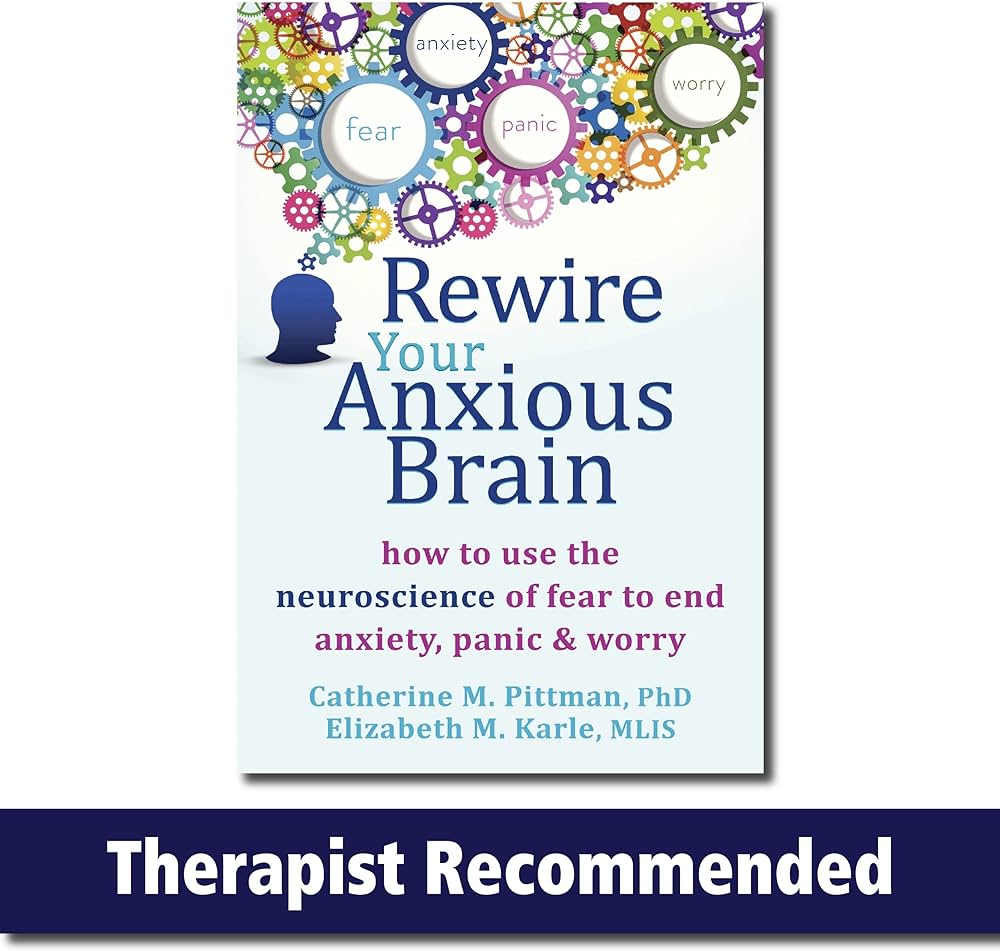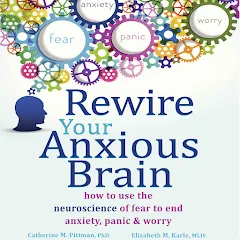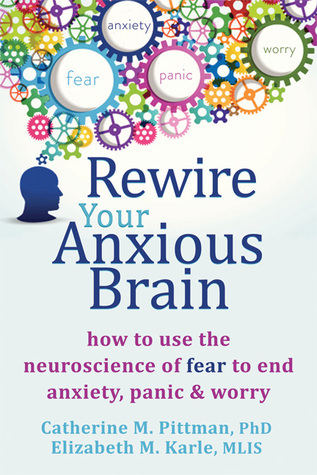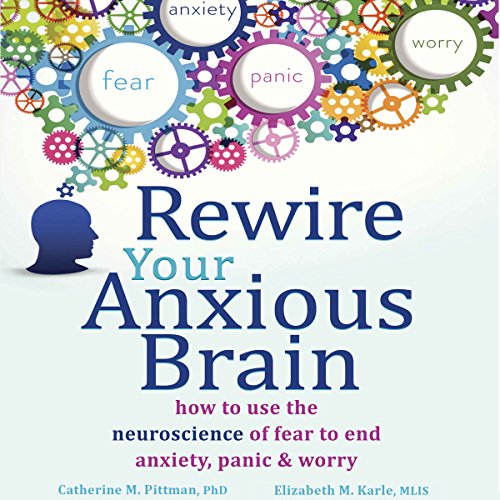Catherine M. Pittman’s “Rewire Your Anxious Brain” audiobook explores how to manage anxiety through neuroscience. It provides actionable strategies for rewiring the brain.
This audiobook delves into the science behind anxiety, explaining how the brain’s amygdala and cortex contribute to anxious feelings. By understanding these mechanisms, listeners can better manage their anxiety. Pittman offers practical techniques for altering thought patterns and behaviors that fuel anxiety.
The content is accessible and easy to follow, making complex neuroscience understandable. Whether you struggle with anxiety or seek to help someone who does, this book provides valuable insights. Its blend of scientific explanation and practical advice makes it a must-listen for anyone looking to improve their mental health.

Introduction To ‘rewire Your Anxious Brain’
Catherine M. Pittman, PhD, is a clinical psychologist. She has over 30 years of experience. Her work focuses on understanding and treating anxiety. She teaches at Saint Mary’s College in Indiana. Dr. Pittman has written many articles on mental health. She is also a licensed therapist.
The audiobook explains how the brain causes anxiety. It helps listeners understand two key brain parts. These parts are the amygdala and the cortex. The book offers practical strategies to manage anxiety. It combines neuroscience with therapeutic techniques. Listeners learn how to rewire their brain for better mental health. The audiobook is easy to follow and very helpful.
The Science Of Anxiety
Anxiety changes how the brain works. The amygdala is key in this process. It triggers the fight or flight response. This makes the heart beat faster. The prefrontal cortex helps us think clearly. Anxiety can make this part less active. This causes poor decision-making. Anxiety can also disrupt sleep patterns. This affects overall brain health.
There are various forms of anxiety. Generalized anxiety disorder causes constant worry. Panic disorder involves sudden, intense fear. Social anxiety makes social interactions hard. Obsessive-compulsive disorder involves unwanted thoughts. Post-traumatic stress disorder follows traumatic events. Each type has unique symptoms. Treatment plans can differ for each type.
Core Concepts Of The Audiobook
The brain can change itself. This ability is called neuroplasticity. New habits can be formed. Old habits can be broken. Learning new things helps the brain grow. Practicing skills makes them stronger. The brain can always learn and adapt.
The amygdala is part of the brain. It handles emotions like fear. The cortex thinks and makes decisions. Both parts work together. The amygdala reacts quickly. The cortex takes more time. Understanding this helps manage anxiety.

Strategies To Rewire Your Brain
Changing thoughts can help reduce anxiety. Try to identify negative thoughts. Replace them with positive ones. Practice mindfulness to stay in the present moment. Use affirmations to build confidence. Visualization can also help. Picture a calm place in your mind.
Exercise is a great way to reduce anxiety. Daily walks can help. Breathing exercises calm your mind. Try meditation for a few minutes each day. Journaling your thoughts can also be helpful. Face your fears step by step. Start small and gradually increase challenges.
Eating a balanced diet can improve mental health. Limit caffeine and sugar intake. Get plenty of sleep every night. Social connections are important. Spend time with friends and family. Create a routine to bring structure to your day. Avoid alcohol and drugs as they can increase anxiety.
Real-life Applications
Many people have used the audiobook to change their lives. One person faced constant panic attacks. After listening, they learned techniques to calm their mind. Another person struggled with social anxiety. The audiobook helped them feel more confident in public. These case studies show the book’s practical impact.
There are many success stories from this audiobook. One listener had trouble sleeping. They used the tips to improve their sleep patterns. Another listener felt overwhelmed at work. They used the strategies to manage stress. These success stories highlight the effectiveness of the book.
Practical Exercises From The Audiobook
Deep breathing helps you stay calm. Start by inhaling deeply through your nose. Hold the breath for a few seconds. Then exhale slowly through your mouth. Repeat this process five times. This can help reduce stress and anxiety. Practice every day for best results.
Mindfulness means paying attention to the present moment. Sit in a quiet place. Close your eyes and focus on your breathing. Notice how your body feels. If your mind wanders, gently bring it back. Practice for 5-10 minutes daily. This can help you feel more relaxed and focused.
Challenges And Solutions
Many people face anxiety daily. Sometimes, it feels overwhelming and hard to manage. Anxiety can make it difficult to focus or sleep. Negative thoughts often increase anxiety. Some people feel isolated because of their anxiety. Finding effective solutions is crucial. Listening to audiobooks can be very helpful.
Small steps can lead to big improvements. Deep breathing exercises help calm the mind. Mindfulness activities reduce stress. Listening to Catherine M. Pittman’s audiobook offers valuable tips. Consistent practice is key to success. Support from friends and family is also important. Learning to manage anxiety takes time. Patience and persistence make the journey easier.

Conclusion And Further Reading
Explore Catherine M. Pittman’s audiobook, “Rewire Your Anxious Brain,” to transform anxiety through neuroscience. For more insights, delve into further reading materials recommended at the end.
Summary Of Key Points
The audiobook teaches how to manage anxiety. It explains the brain’s role in anxiety. Understanding the amygdala helps control fear. The cortex helps manage worry and stress. Practical exercises are included for better mental health. Mindfulness is a key technique. Cognitive-behavioral therapy is another method. Both methods help rewire the brain. The book provides real-life examples and solutions.
Recommendations For Continued Learning
Read books on mindfulness and meditation. Try apps that guide relaxation. Join support groups for anxiety. Consult a therapist for personalized help. Listen to other audiobooks on mental health. Practice daily exercises for better results. Stay informed about new research. Follow trusted mental health websites. Build a routine to reduce stress.
Conclusion
Catherine M. Pittman’s “Rewire Your Anxious Brain” audiobook offers practical tools to manage anxiety. It’s an invaluable resource for anyone seeking mental peace. By understanding brain science, listeners can effectively reduce anxiety. Dive into this transformative audiobook and empower yourself to lead a calmer, more balanced life.



